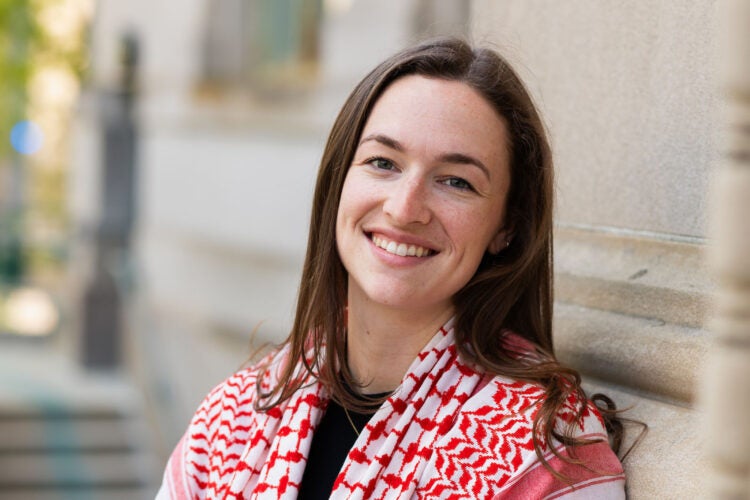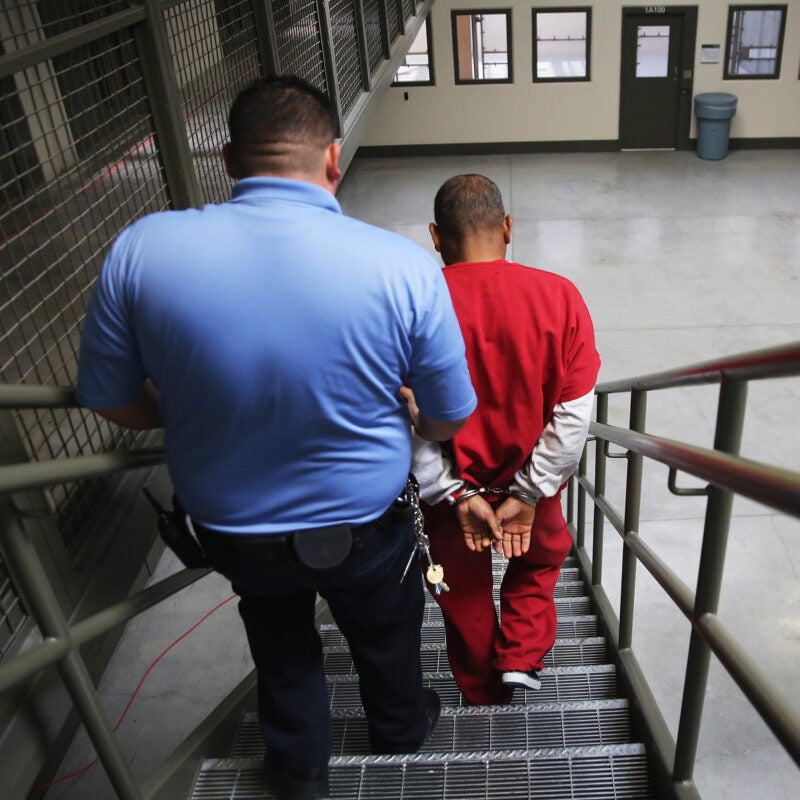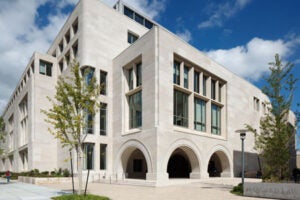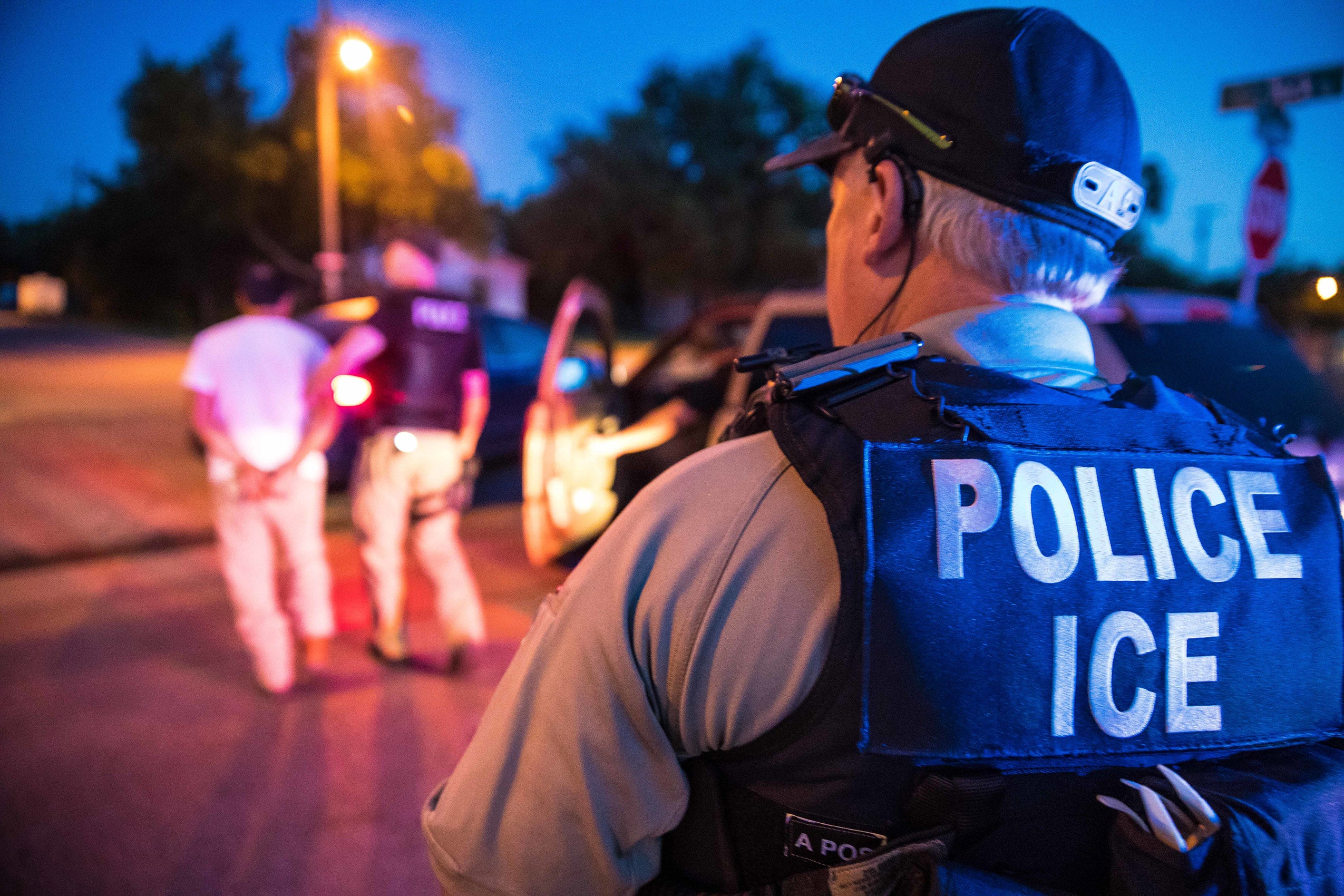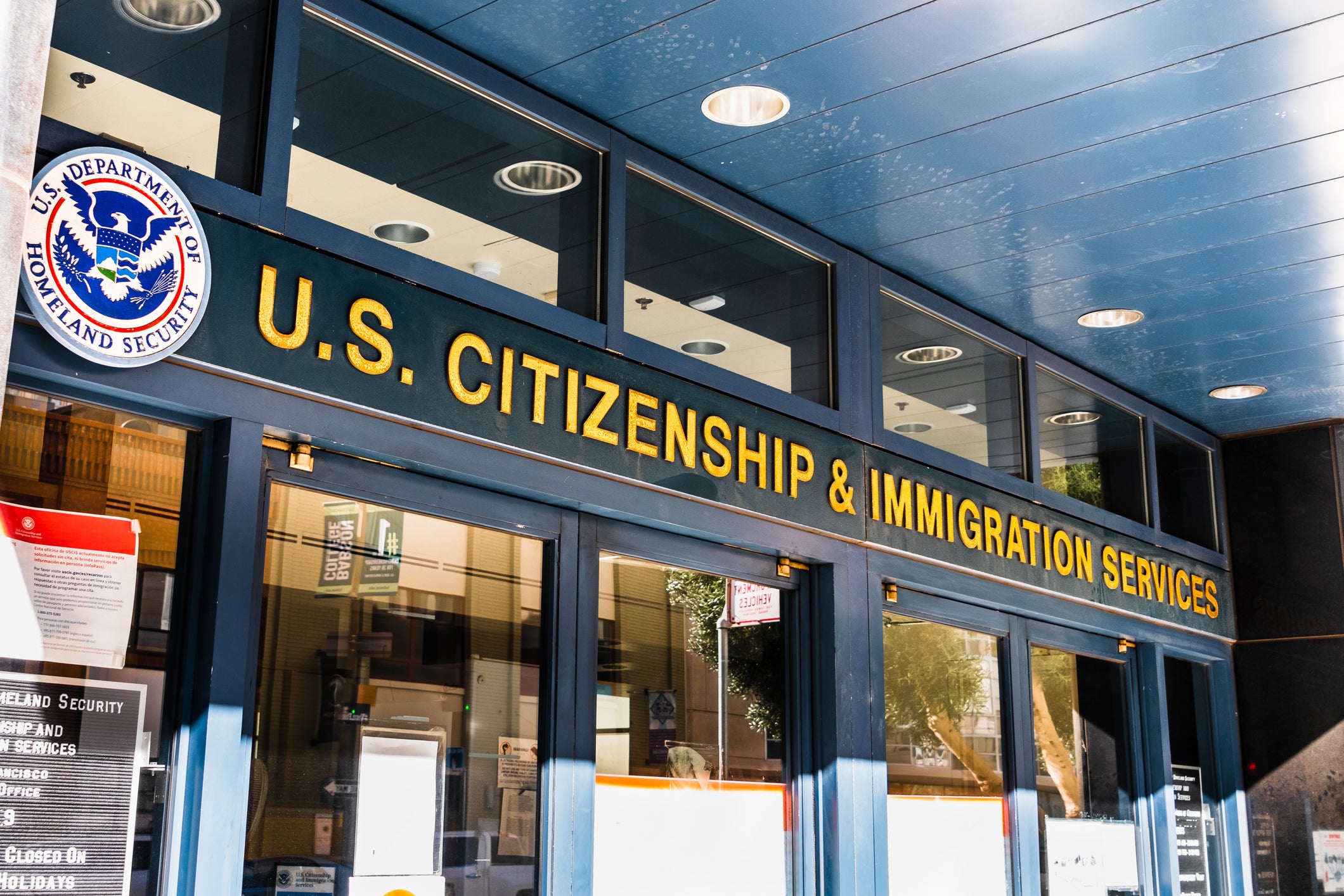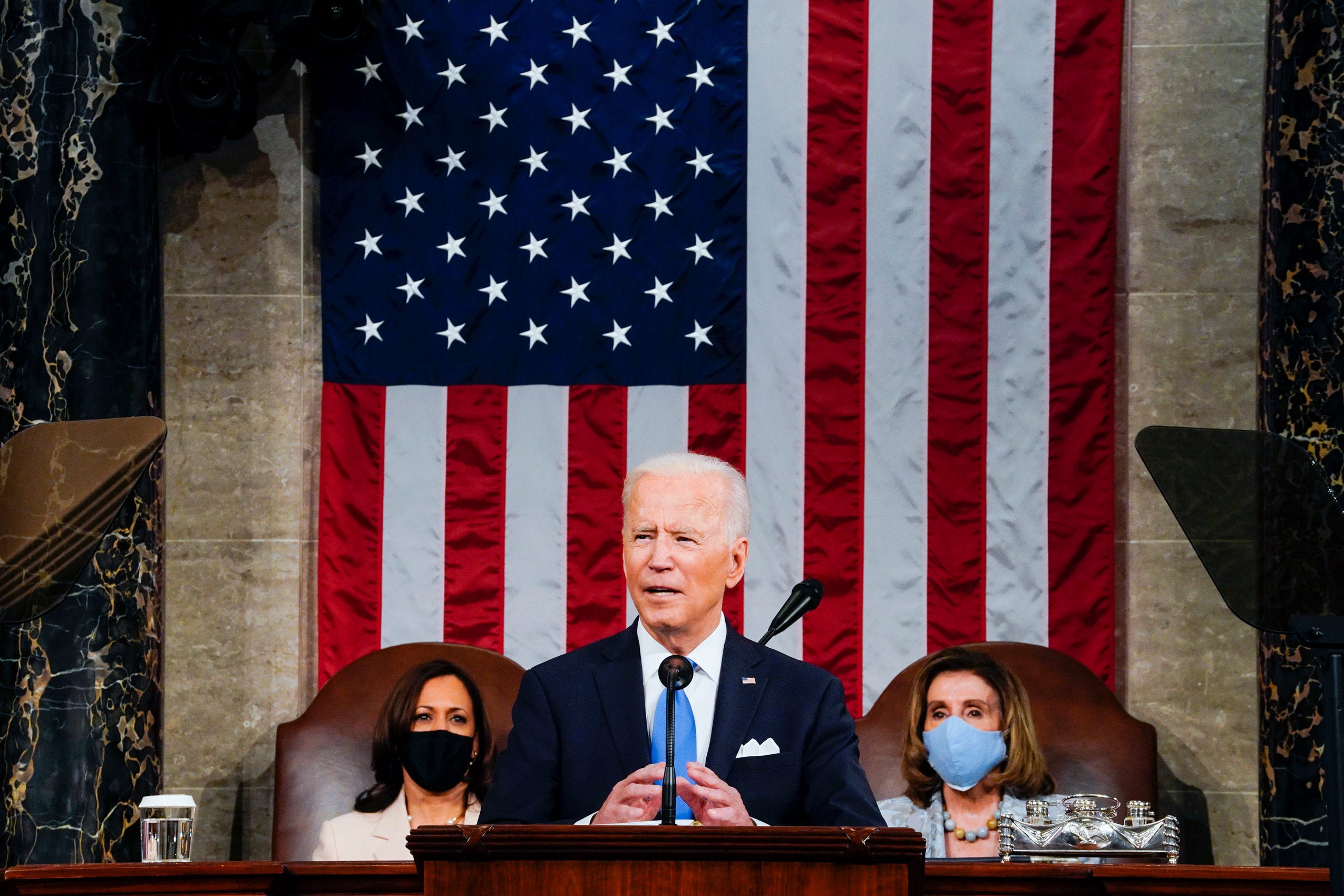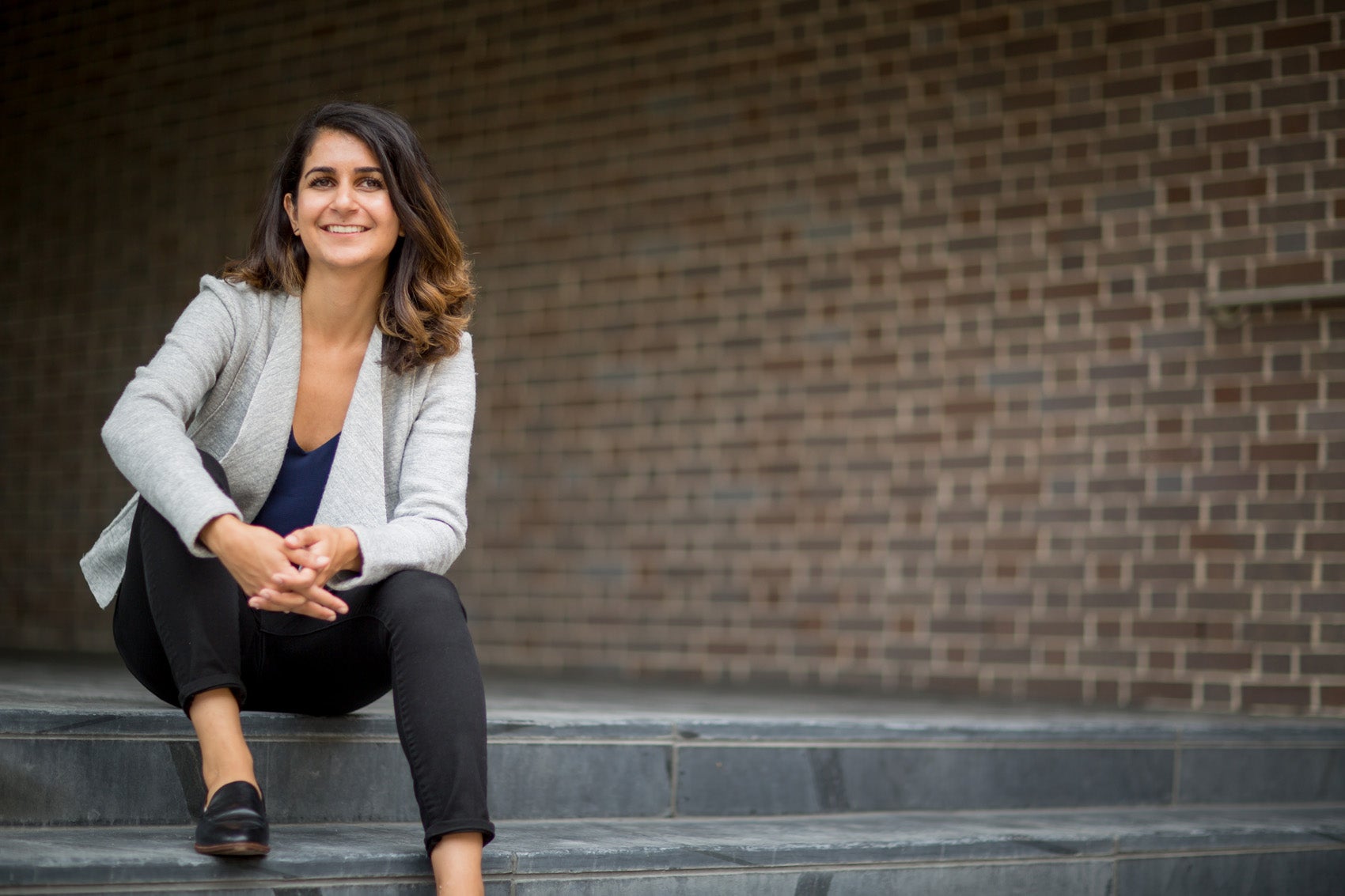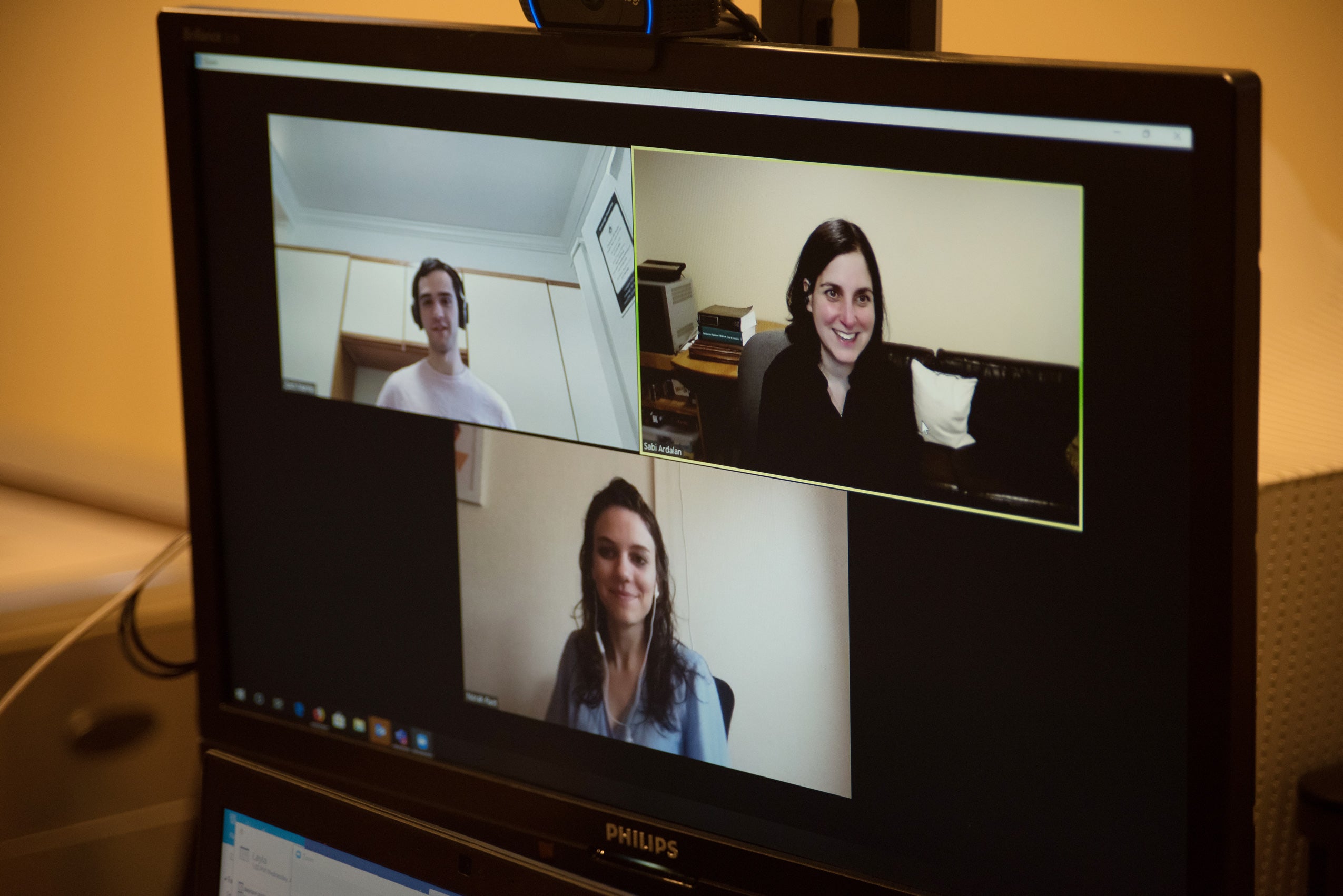People
Phil Torrey
-
Ricardo Jimenez Solis ’23 is the recipient of the 2023 David A. Grossman Exemplary Clinical Student Award.
-
His American Dream
May 12, 2023
With the support of other immigrants and compassionate immigration lawyers, Ricardo Jimenez Solis ’23 is now achieving what his family hoped for when they left their home in El Salvador for the United States.
-
The First Circuit ruled that a man born in India and brought to the U.S. as a child is deportable, finding that his involvement in…
-
New faculty appointments
April 18, 2023
Harvard Law School expands the ranks of its faculty with four appointments.
-
Philip Torrey named assistant clinical professor of law
April 14, 2023
Philip Torrey, managing attorney of the Harvard Immigration and Refugee Clinical Program, and director of the Crimmigation Clinic, was named an assistant clinical professor.
-
The Boston Police gang database gets overdue attention
January 24, 2022
For years, the Boston Police Department’s notorious gang database has troubled local elected officials and civil rights advocates, who have raised serious concerns about the list of suspected associates of criminal street gangs: What makes someone land in the database? How exactly it is being used by police and other law enforcement agencies? How effective is the list overall in preventing crime? ... But the changes haven’t satisfied critics. “To be honest, in terms of the what exactly [BPD] has changed and how effective that’s been, it’s still a little opaque,” said Phillip Torrey, director of the Crimmigration Clinic at Harvard Law School. The clinic offered expertise in the recently won case in the Appeals Court. “And to my knowledge, they still use this arbitrary point system where I’ve seen cases of people who get X amount of points for talking to somebody who BPD thinks is a gang affiliate. And then another person does the exact same thing and they get Y amount of points. So, I haven’t seen consistency within that sort of arbitrary point system.”
-
Crimmigration Clinic helps score First Circuit victory for asylum-seeker, Boston-area immigrants
January 18, 2022
In a case that could have national implications, the Harvard Law School Crimmigration Clinic recently convinced judges at the U.S. Court of Appeals for the First Circuit to discredit the use of controversial municipal gang databases in immigration proceedings.
-
Supreme Court preview: Garland v. Gonzalez
January 4, 2022
Two Harvard Law School scholars explain why the Garland v. Gonzalez case could have broader implications for immigrants and advocates.
-
Harvard Immigration and Refugee Clinical Program's Phil Torrey weighs in on the Biden administration's efforts to address the nation's immigration policies.
-
Evaluating President Biden’s first 100 days
April 28, 2021
As President Joe Biden approached his 100th day in office, Harvard Law Today asked faculty members and researchers from across Harvard Law School to weigh in on the new administration’s agenda, actions, accomplishments, and failures to date.
-
Harvard Immigration and Refugee Clinical Program scores a victory for asylum seekers
November 20, 2020
In recent court victory, students from the Harvard Immigration and Refugee Clinical Program help safeguard the lives of countless asylum seekers by preventing more stringent federal immigration rules from going into effect.
-
After a hard election, the real work begins
November 13, 2020
In a recent Harvard Gazette roundup, Tomiko Brown-Nagin, Phil Torrey and other university scholars, analysts, and affiliates took a look at what the election tells us about the prospects for greater unity and progress, and offered suggestions and predictions about where the new administration will, and should, go.
-
At Harvard, Niku Jafarnia J.D. / M.P.P. ’20 found a wealth of ways to advocate for refugees
May 24, 2020
With the aim of advocating for refugees, Niku Jafarnia J.D. / M.P.P.’20 focused on the intersection of refugee rights, armed conflict, and counterterrorism as joint law and public policy student at Harvard.
-
For the Clinical Program at Harvard Law School, the past weeks of the COVID-19 pandemic have been a time to mobilize. As the clinics have moved to working remotely, their work has continued with new urgency.
-
The Trump administration is going to send Border Patrol agents to “sanctuary” cities around the country, including the Boston area. The Department of Homeland Security said the extra personnel will help ICE agents with immigration enforcement. The Trump administration is going to send Border Patrol agents to “sanctuary” cities around the country, including the Boston area. The Department of Homeland Security said the extra personnel will help ICE agents with immigration enforcement. “This is like a SWAT team basically coming in,” said Philip Torrey of Harvard Law School. “These are folks with sniper certifications, they’re really designed for counter-terrorism, going after significant drug cartels.” Torrey believes the plan creates a bigger risk to public safety. “It has a chilling effect in terms of people reporting crimes, folks being willing to go to the police,” he said. DHS said the officers “have also been trained in routine immigration enforcement actions which is what they have been asked to do.” Sanctuary cities in the area include Boston, Somerville, Cambridge, Newton and Lawrence.
-
Border patrol agents to have presence in Boston for immigration enforcement in coming weeks
February 19, 2020
Local officials and advocates are condemning the Trump administration’s decision to send federal border patrol agents to Boston and other so-called sanctuary cities in coming weeks to support immigration enforcement, calling the move an intimidation tactic that could harm public safety. “None of this makes us safer,” said Suffolk District Attorney Rachael Rollins. The initiative, she said, aims “to strike fear and terror throughout our immigrant communities." ...Dispatching border patrol agents to Boston would represent “an incredible waste of resources,” said Phil Torrey, director of the Crimmigration Clinic at Harvard Law School. The tactical unit, Torrey said, is “designed for counterterrorism-type operations or large safety concerns like the Super Bowl.” It typically hasn’t been used for local enforcement efforts, he said. “It’s yet another example of the Trump administration using scare tactics on municipalities that don’t abide by detainers,” Torrey said. Detainers are requests from federal authorities for law enforcement to hold an individual in custody. Boston, Torrey said, has a policy that states Boston police are not authorized to abide by a request to hold someone solely for immigration purposes.
-
In recent years, four Mass. jails got $164 million in federal money to house ICE detainees
January 27, 2020
The state has received more than $160 million in funding from federal immigration authorities since 2012, mostly in exchange for keeping and transporting ICE detainees in jails run by four Massachusetts sheriff’s departments, a Globe review has found. The sum, brought into the state’s coffers through controversial contracts with US Immigration and Customs Enforcement, has raised the eyebrows of some advocates and immigration attorneys who oppose the agreements and think there are better alternatives. The sheriff’s offices, meanwhile, have defended the arrangements, with at least two departments saying their relationship with ICE has made Massachusetts residents safer...Philip L. Torrey, managing attorney for Harvard Immigration and Refugee Clinical Program, said that immigration detention has not always been a part of the country’s immigration enforcement system. “It’s concerning that in just the last few decades it has become the centerpiece of immigration enforcement system,” said Torrey. Torrey’s program recently completed a study that found that there was a “potentially flawed accounting system across Massachusetts sheriffs’ offices that fails to fully account for all of the costs associated with immigration detention at their facilities in a consistent and comprehensive manner.” “There is a concerning lack of transparency, accountability, and oversight in the immigration detention systems in Massachusetts,” read the report.
-
Prepared for the Challenge
January 7, 2020
As students, they participated in the Harvard Immigration and Refugee Clinical Program. As lawyers, they have continued the work in a field that is increasingly challenging—and fulfilling
